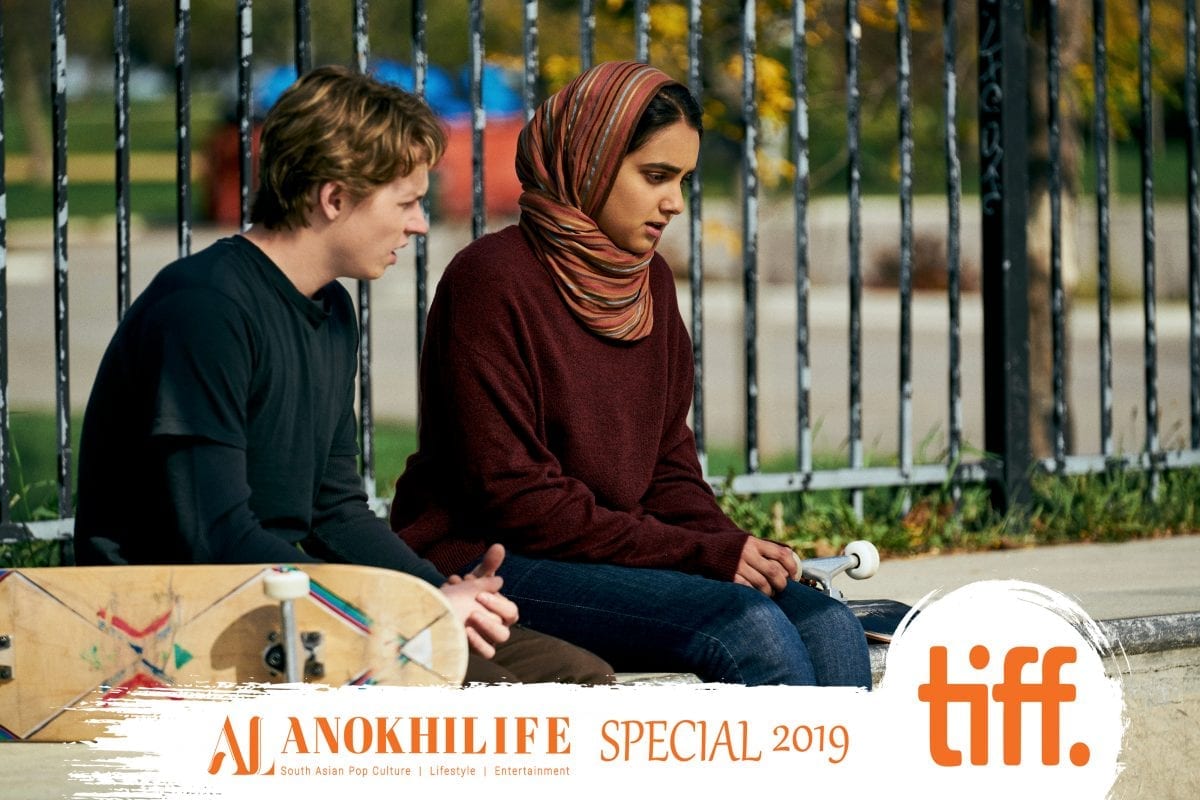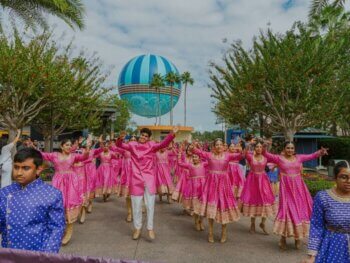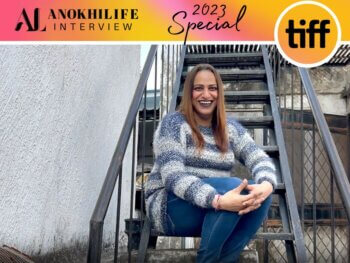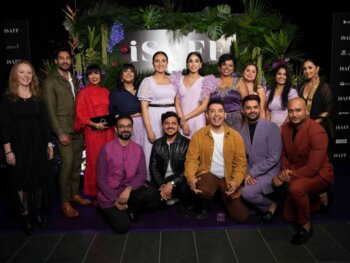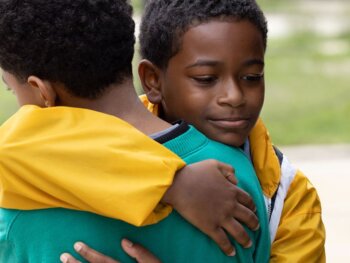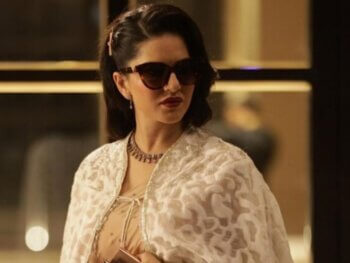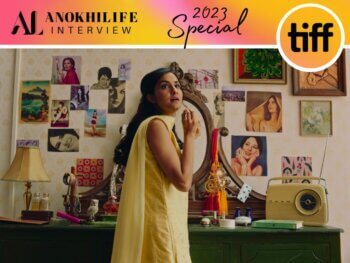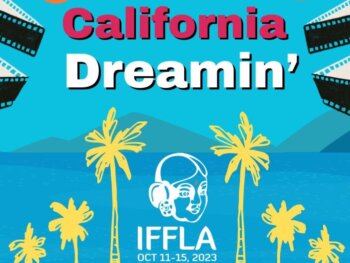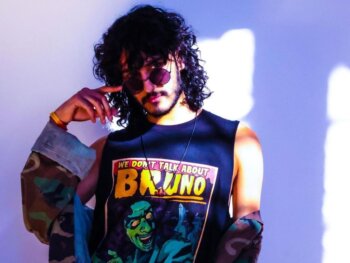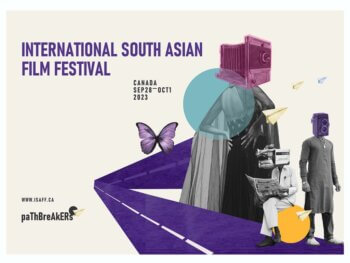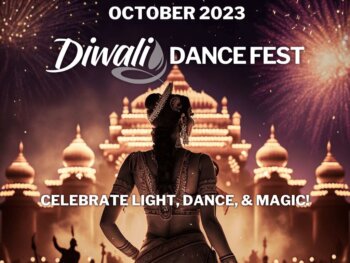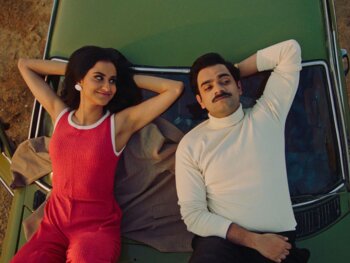ANOKHI chats with up-and-coming young filmmaker Minhal Baig about her tender, nuanced coming-of-age drama, Hala.
Nascent streaming service Apple TV+ launched at the start of November with a handful of high-profile original series featuring the A-list likes of Jennifer Aniston, Reese Witherspoon, Jason Momoa and the incomparable Oprah Winfrey.
Soon, however, they’ll be fleshing out their library with something a bit more understated. The tender, nuanced coming-of-age drama Hala centres on a Pakistani-American teen (Blockers breakout Geraldine Viswanathan) struggling under the oppressive expectations of her parents (Purbi Joshi, Azad Khan) while she undertakes the inherently messy process of figuring out who she is, made all the messier as she ponders romance with her first crush (Jack Kilmer). Veep alum Anna Chlumksy and Terminator: Dark Fate‘s Gabriel Luna also star. The Jada Pinkett Smith-produced film comes to Apple TV+ on Friday, December 6.
Apple first snagged the rights to the well-reviewed drama back at Sundance, but Hala subsequently screened at the 2019 Toronto International Film Fest, where ANOKHI was able to sit down with young director Minhal Baig at the Love Child social house on Bathurst St. Topics include side-stepping cliché, putting pieces of yourself into your work and her Australian leading lady’s deceptively good American accent.
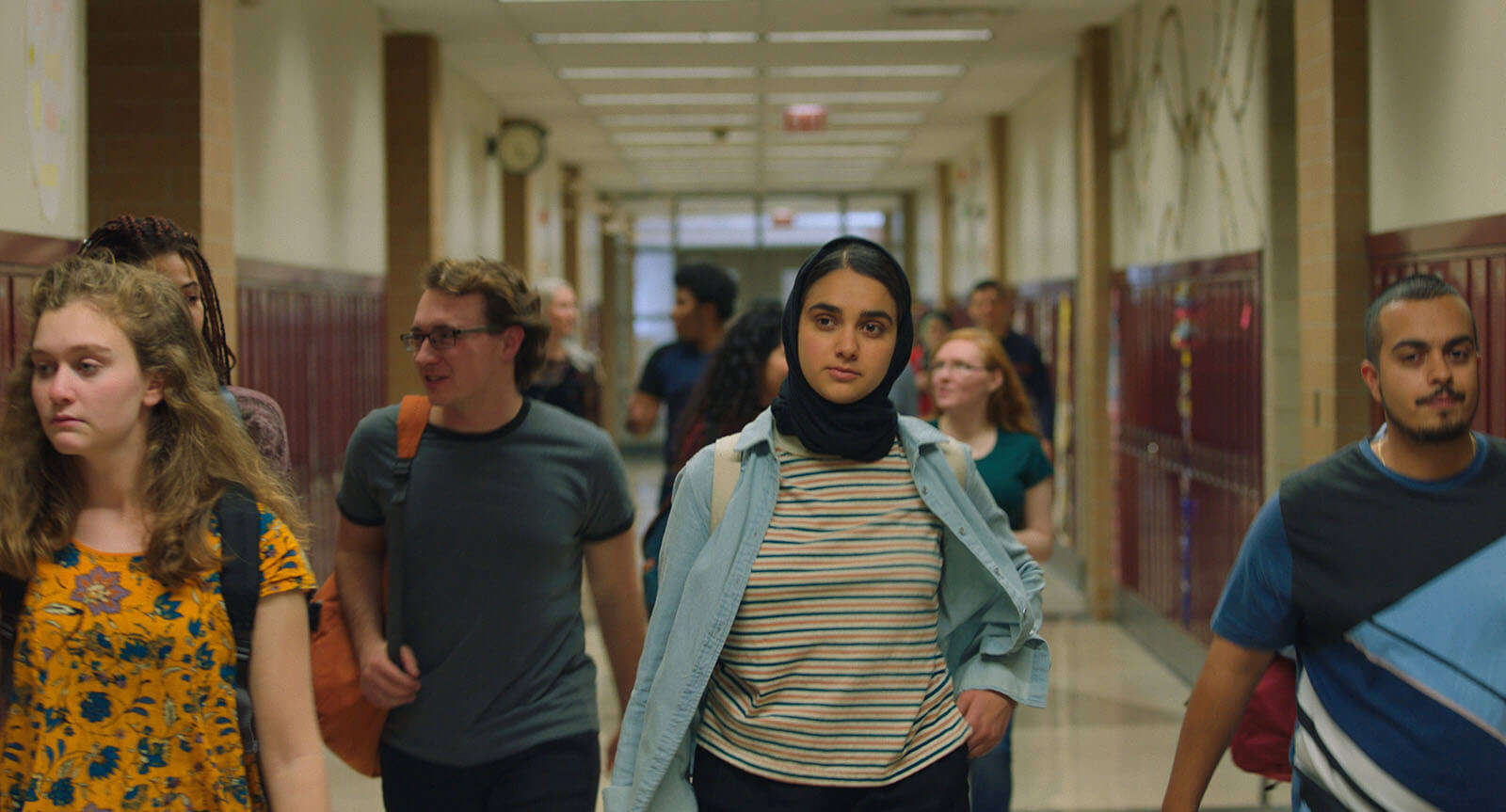
Matt Currie: What was it like the first time you saw the film with an audience?
Minhal Baig: It was terrifying. You know how filmmakers do these interviews and they’re like, “My soul left my body, it was the best day of my life . . .” I always eye-rolled at that stuff; I was like, “Get over yourself!” And then, it was happening to me as I was sitting there next to Geraldine at the world premiere in the Library Theater in Park City [at Sundance] and I was like, “Oh my God!” It was so emotional . . . I think anytime a filmmaker brings a little part of themselves, some lived experience, some emotional truth to the movie, it has higher stakes, because you care all the more for people to understand what that truth is.
I went up there [onstage at the Sundance premiere] and I think it was kind of like being a standup comedian for a second — like, the lights are too bright and you’re just trying to get through your set and then go away [laughs].
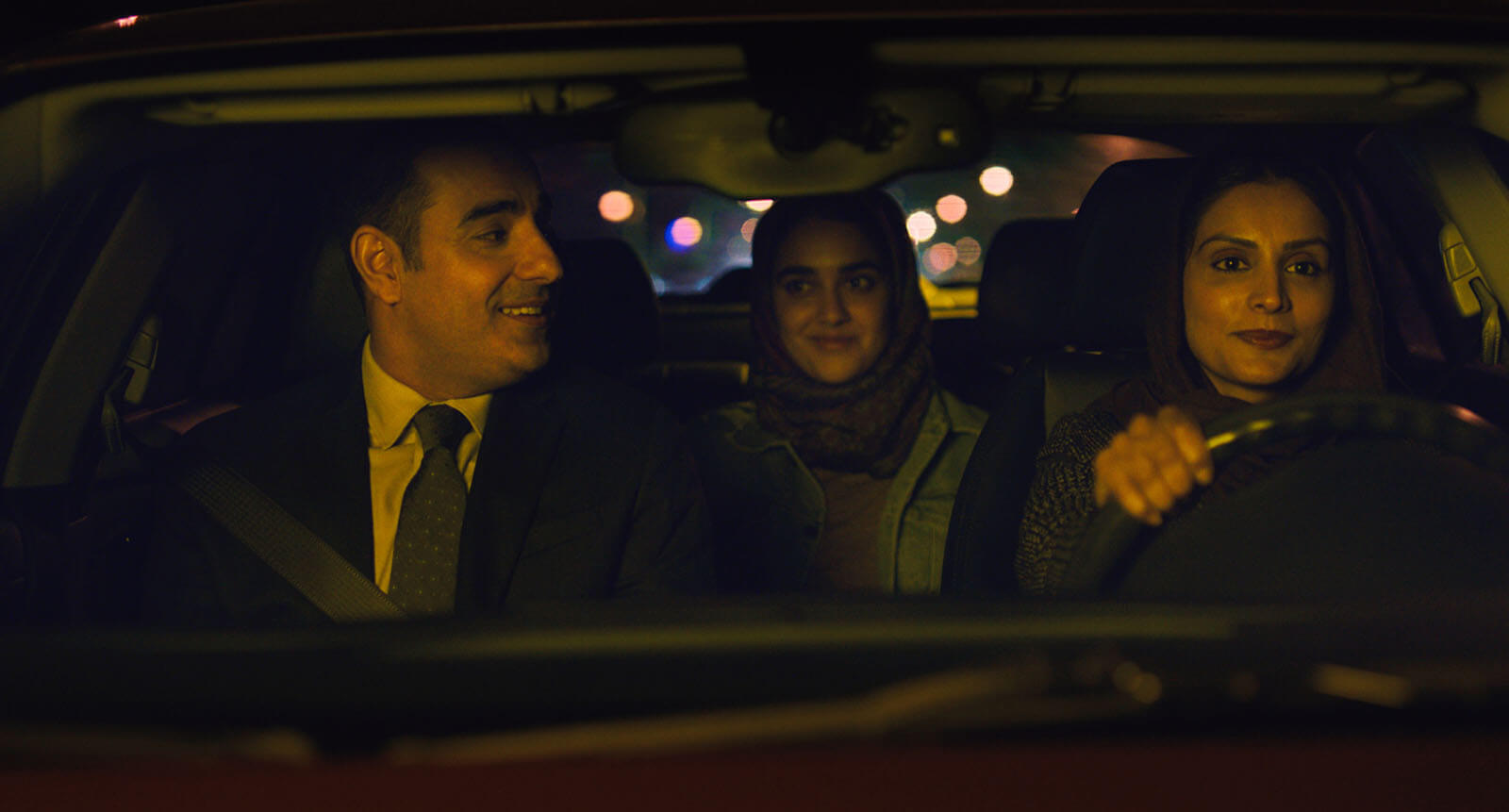
MC: You also did some work on [comedian] Ramy Youssef’s Ramy. What was it like being part of a series that explores the Muslim experience in America in a comedic yet authentic way, and is also so well-received?
MB: It was like working at a startup. Ramy had read Hala, and brought me onto the show for the first season. It felt like we were on the precipice of something very controversial but also very necessary and a perspective that we hadn’t seen before. And Ramy did so much of the show [based on] his own life, and is also acting in it, which is a whole other level that I do not desire to do, ever . . . I really respect that he brought so much of his own life and was vulnerable in a way that opens you up for scrutiny.
MC: Every genre has its own well-worn tropes and clichés; were there any coming-of-age clichés you wanted to avoid?
MB: Well, coming-of-age is well-worn, but I would say that the more specific you can get about the experience, the fresher that it feels. I think the thing that was really important to portray and mattered to me was this complex family dynamic, which I often didn’t get to see so much onscreen. I saw bits and pieces of it, like when you watch [HBO series] The Night Of, when the lead character goes home and you see that little glimpse into his life; I was like, “That’s the most interesting part for me. I want to make a movie that’s about that.”
It’s a young woman, she’s discovering herself, her identity, but also reconciling parts of her culture, her faith. She’s not going to abandon them, but she’s going to reinterpret them and refashion them for herself as she’s also coming into her own as a human being.
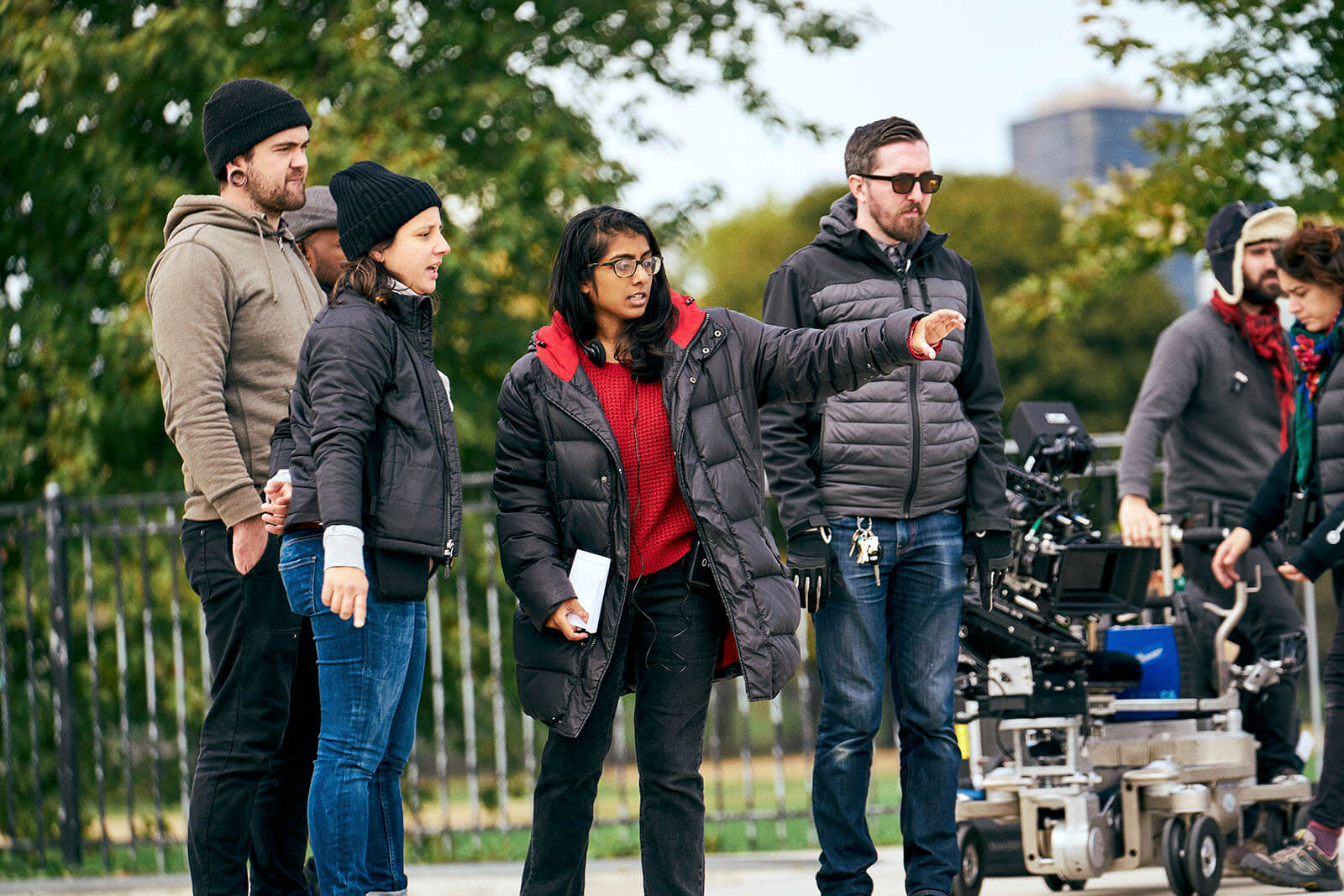
MC: I’m always interested in the process a filmmaker goes through adapting a short film into a full-length feature.
MB: The short and the feature are so different, but spiritually are the same. I made the short to focus on the subplot, the Hala and Jesse romance, and then the feature ended up being much more about the family. And I only learned that as I was making the short and having people respond to the short with this want for more backdrop, more context — “What’s going on with her parents? What’s going on with their marriage? What is it like for Hala to be at home?” The well-worn territory was the first crush. And that was always going to be a part of the story, but what was less well-worn was Hala’s relationship with her mother, who is more culturally conservative; the dynamic in their home as they’re all Muslim, and how is she navigating her newfound sexual agency and identity outside of the home with who her parents want her to be?
MC: One of the universal themes touched on in the movie is kids realizing their parents aren’t who they thought they were.
MB: Yeah, when I was growing up, I just thought my parents were extensions of myself. It’s kind of like running into your teacher at the grocery store; you’re like, “You have a life?” It’s so weird that they have their own needs and wants and you don’t think about it. Because when I was 17, I had blinders on, the same way that Hala has blinders on; she’s not really seeing her mom at the beginning of the movie, she sees her as encroaching on her freedom, limiting who she is and what she wants to do. And then later on, her mom has a whole parallel story. She has her own coming-of-age thing going on and it’s very similar to Hala’s journey.
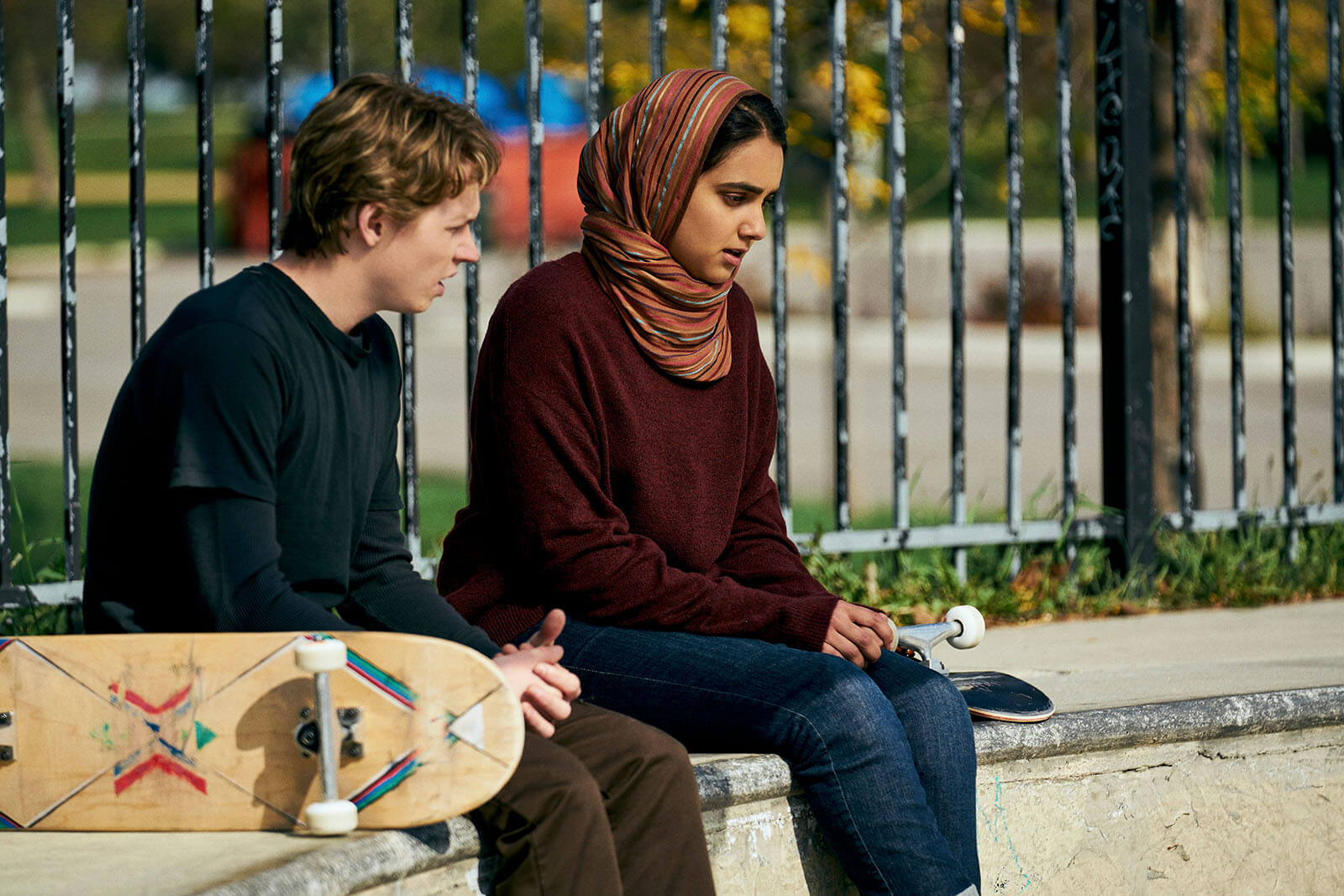
MC: Finally, let’s talk about the Geraldine of it all; she’s also at the festival in Hugh Jackman’s Bad Education and she’s been anointed one of TIFF’s annual crop of Rising Stars. What does she bring to the table as Hala?
MB: She’s the best. She’s super-funny. Her Instagram is hilarious.
When we were looking for Hala, it was always going to be a challenge to find someone who could embody so much without saying a lot. She had to visually communicate this internal conflict, she had to have all these layers and things going on non-verbally. And when Geraldine submitted her tape, it was all of that, but also this added dimension of levity and charisma which on paper is really hard to define — it’s something that the actor brings to the character. She’s a very self-serious teenager on paper, and then Geraldine brought a little bit of lightness to her and a buoyancy that was very unexpected.
I’ll tell you something about Geraldine’s work ethic. We were on the last day of the shoot, and Geraldine got back to her Australian accent, because she’d been in an American accent the entire time. And some of the crew members were like, “Why is Geraldine doing an Australian accent? Is this a bit?” Because she’s a comedian. And I was like, “No, guys, she’s Australian.” And they were like, “What?!?!” They just were in shock, because she was holding that accent the entire time.
Main Image Photo Credit: Apple TV+
Matthew Currie
Author
A long-standing entertainment journalist, Currie is a graduate of the Professional Writing program at Toronto’s York University. He has spent the past number of years working as a freelancer for ANOKHI and for diverse publications such as Sharp, TV Week, CAA’s Westworld and BC Business. Currie ...


















































